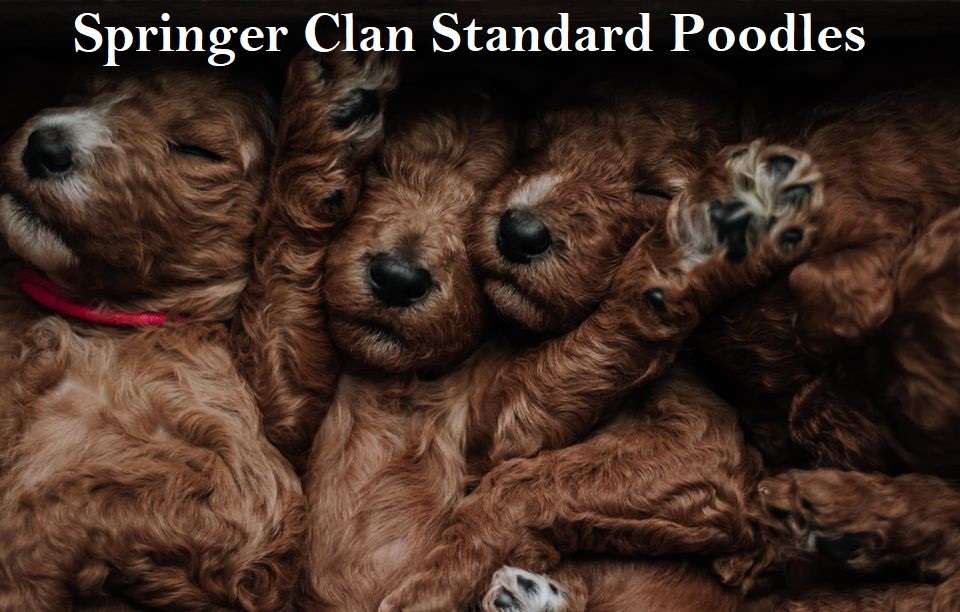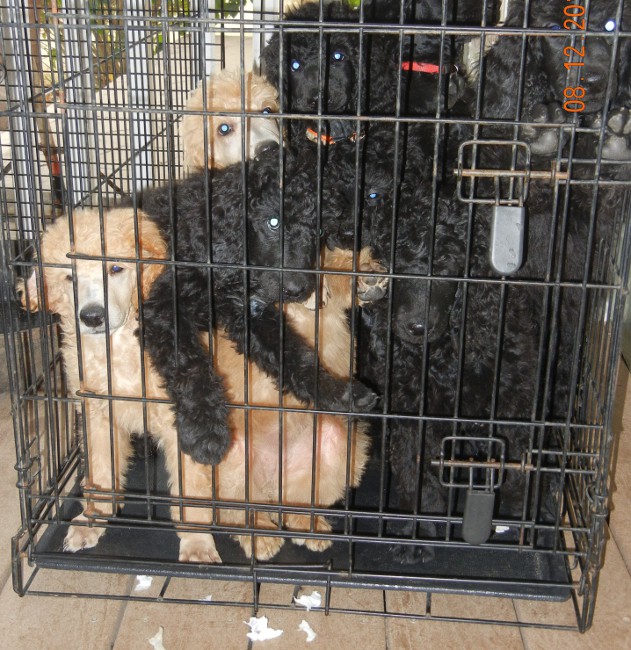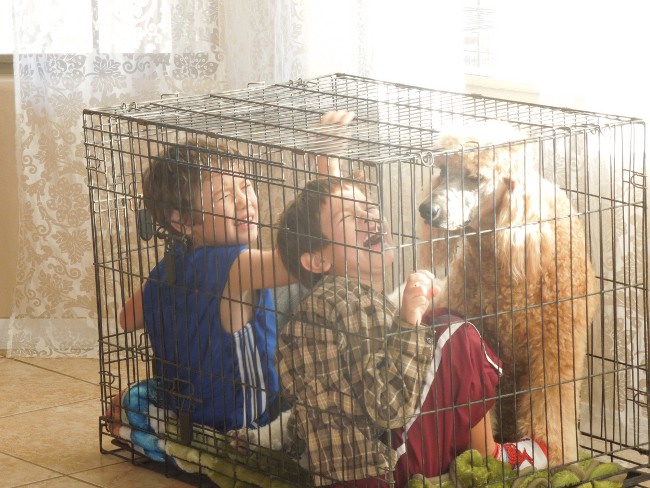SCSPoodles 4 Week Foundation Training Information
4 Week Foundation Puppy Training – $1200.00
For some, potty, crate and boundary training seems a bit overwhelming. This can be due to a busy schedule, the lack of know-how, or simply just being a huge task that takes a few weeks at the minimum. It can deprive you of sleep and much more. The crying at night, howling, the constant accidents and laundry at times seems ridiculous. Well we have devised a program that might assist you with this. Basically we will get your puppy on a feeding, playtime, potty, sleeping schedule for you. It does not create the perfect puppy, but it will create a foundation for you to be able to function the next day without being up through the night with a new puppy.
The program is basic really, from the 8th week puppy will remain with us, be brought into our home (instead of our puppy area outside) and put into a crate where we will crate train your pup for you. At night your pup will sleep in a crate or in the playpen….silently and happily. Your pup will be fed and trained as one of our own. At the end of the 4 weeks your pup should be trained to the best of THEIR ability in the following:
- Crate Trained – This DOES NOT mean you can give free run of the house, it means pup will NOT pee in crate or playpen with out giving you warning as to what they need. It also means that you can safely leave your puppy for 4 to 5 hours during the day with no accidents.
- Know his/her name
- Potty in same area every-time so you can continue the same when pup goes home
- Stay content through the night from 9/10pm till about 5-6am
- Stay content in a playpen (no crying, whining, pooping, or climbing on) during the day (for 4 to 5 hours increments)
- No biting
- No Jumping
- No chewing on your clothes or shoes
- Will be introduced to leash at 9 weeks of age, by 11 & 12 Weeks pup will walk with you and be eager to move with you as close to healing as you can get for now.
- Should be able to Sit on command…..
- Training focused on working a good recall
- Will go directly to crate when coming into house and directly outside when exiting the crate
- Socialized with smaller dogs to teach manners to avoid bullying
- Socialized with cats, chickens, and guinea fowl
- 1 Final grooming at 12 weeks old
- 1 Additional set of shots at 11 weeks
- 1 Additional worming (12 weeks old)
If you are interested in this additional training please let me know ASAP as spots are limited per litter and not offered on all litters due to scheduling.
Crates, Crate Training, and Puppy Stages
Ok, Ok, They are funny though!! We crated an entire litter in one crate for a few minutes while I cleaned up poop, and of course my boys are jokesters! Poor Penny!
Dog kennel, crate, carriers. Soft sided, wood, plastic, metal. What size should you purchase? What brand is best? Should you get a bed to fit inside? Should you buy one that grows with your puppy, or get several different sizes? So many questions…. lets get to the answer.
SCSPoodles firmly believes in crate training. By definition crate training is: The process of teaching a pet to accept a dog crate or cage as a familiar and safe place to sleep in. Why crate train? SCSPoodles thinks there are several reasons to crate train, here are a few:
- Assists with “Potty Training”
- Gives your dog a “Safe” place to escape to, away from everything else.
- Teaches your dog that you set the boundaries
- Teaches your dog to “ask” when they need to “go”
- In an emergency this is where Firemen will look for your pet
- Allows your dog to practice self-control
So How to choose a crate? – SCSPoodles suggests a 36 inch crate for full grown Standard Poodle – Amazon 36 Inch Double Door Crate
- This site lists the pros and cons to wire, plastic, soft sided, and cute crates – http://www.thehousebreakingbible.com/training/crate-choices.htm
- “Pick a crate that is big enough for your dog to turn around, stretch, and get comfortable – but not so big that he looks lost inside. If you’ve got a puppy, pick a crate that will fit his full-grown size. After all, you don’t want to be buying a new one every month or two as he grows. While he is small, use a barrier to decrease the available space (like a cardboard box) – if there is too much room he’ll eliminate in one end of it.” – http://www.petco.com/Content/ArticleList/Article/34/1/2148/Choosing-a-Crate-for-Your-Dog.aspxpost=1419&action=edit&message=1
When SCSPoodles is training a new puppy, we put a towel in the crate. The reason behind this is that they have accidents sometimes, and it makes cleaning up after one, easier than if it was a nice, soft, 1in thick sleeping pad. After we feel comfortable with the fact that they won’t have an accident, we put in a nice soft bed for them. Never use newspaper or a pee pad, this will only encourage them to use their crate as a bathroom and to turn this into a shredding toy. Below is a links that we think have some useful information for your review.
Crate Training a Puppy or Dog – http://www.perfectpaws.com/crt.html
Puppy Stages of Development
The following is copied from the website below:
By knowing what to expect and at which times in your puppies life you can better prepare yourself to deal with specific behaviors so you handle them in a way that is both positive and will encourage the kind of behavior you want.
- Neonatal period (0 to 2 weeks)
Puppies can touch and taste at birth, but that’s about it. During this period, they are going to be most influenced by their mother (or mother surrogate) and littermates, and will start learning some simple social skills, coordination, and the ranking process. Mostly, they’ll just eat — newborns need to have milk from mom or a commercial milk replacer about every two hours.
- Transitional period (2 to 4 weeks)
Their eyes open, they stand and walk, their sense of smell and hearing develops, they wag their tail, teeth start coming in, and they’ll even start to bark. By the end of this period, they should be able to use the bathroom on their own and see quite well on their own.
- Socialization period (4 to 12 weeks)
This is the stage and timeframe where it’s incredibly important to introduce your pup to other people and dogs. By five weeks, puppies are aware of their surroundings and start really enjoying playtime. Good experiences with people from weeks 5 to 7 will play a large role in how they continue to interact.But even though they’ll start being influenced by people after about a month, ideally you want puppies to remain with their mother and litter mates for eight weeks to learn inhibited play biting and other dog socialization cues.By week seven, you may be able to start house-training your puppy. From weeks 8 to 10, your pup will go through a normal “fear” period that can be helped with training that is positive and encouraging. But the true training “golden time” is from 9 to 12 weeks, because your pup is actively working on social skills and paying attention to both people and litter mates.
- Ranking period (3 to 6 months)
Think about this period as “elementary school age.” Just like human children, dogs at this point are most influenced by their playmates — both dogs and people. During this stage, your pup will begin to understand and use ranking in terms of submission and dominance. Teething and related chewing (and chewing issues!) happen around this time, and when the puppy is about four months old, she’ll go through another fear stage.
- Adolescence (6 to 18 months)
Your pup now understands that he has a pack (which may consist of both humans and dogs) and his behavior will be most influenced by this group. You can expect your dog to challenge you more as he explores dominance and his role in the pack. Dogs that aren’t spayed or neutered will also start exhibiting sexual behavior during this period, and a second chewing stage will likely begin somewhere between 7 to 9 months.
https://www.cesarsway.com/dog-behavior/puppies/the-stages-of-puppy-growth-and-development

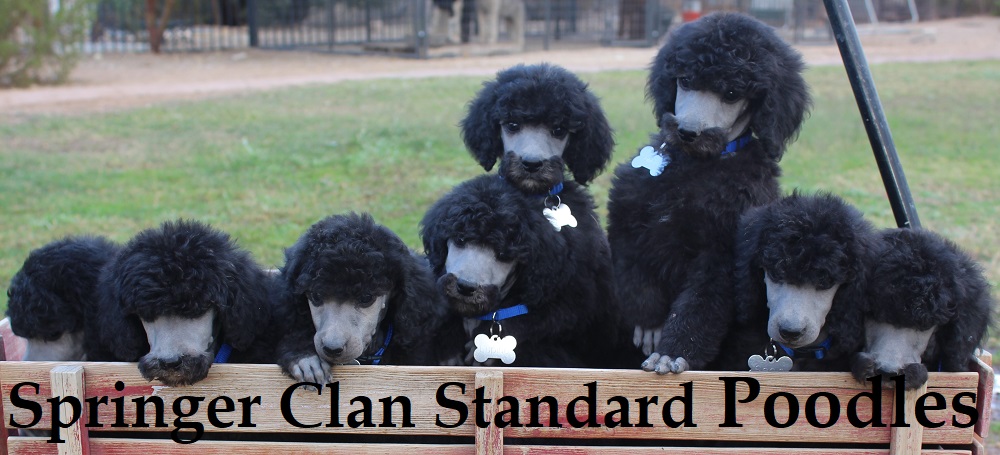
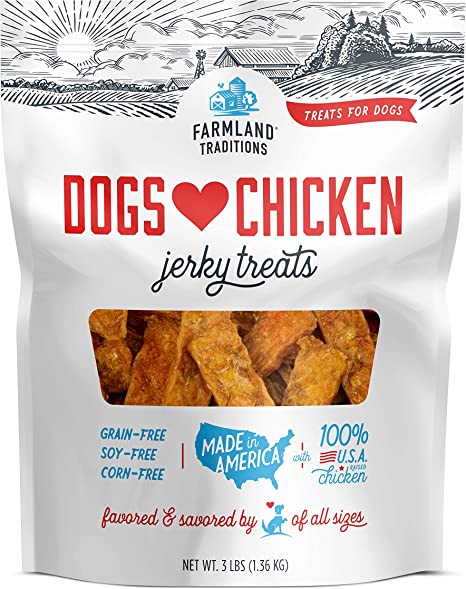 Chicken Jerk Treats – Amazon –
Chicken Jerk Treats – Amazon –  Bully Sticks – Amazon –
Bully Sticks – Amazon –  Duck Jerk Treats – Amazon –
Duck Jerk Treats – Amazon – 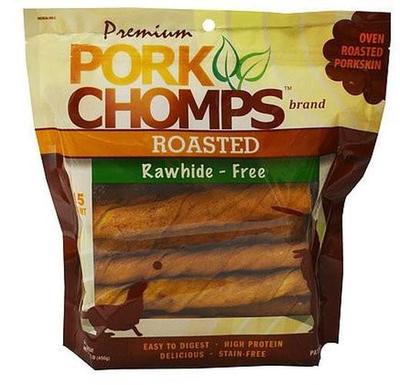 Pork Twists – Amazon –
Pork Twists – Amazon – 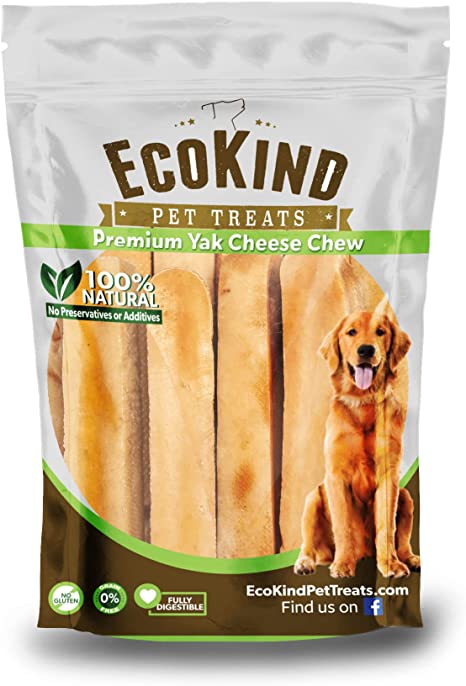 Himalayan Yack Sticks – Amazon –
Himalayan Yack Sticks – Amazon – 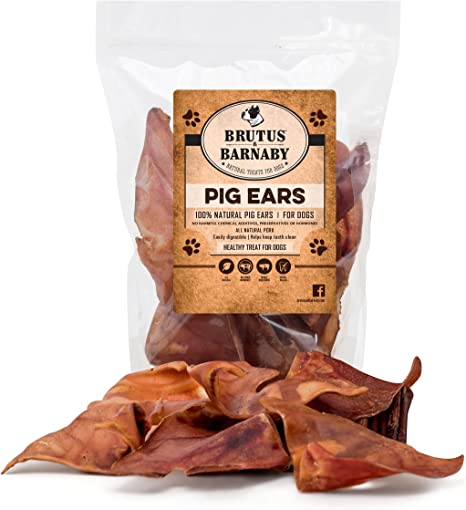 Pig Ears – Amazon –
Pig Ears – Amazon – 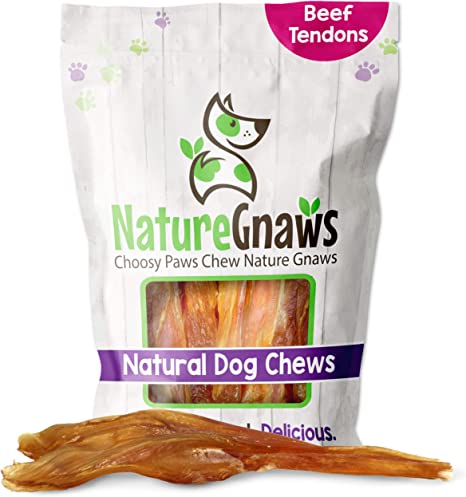 Beef Tendon Chews – Amazon –
Beef Tendon Chews – Amazon – 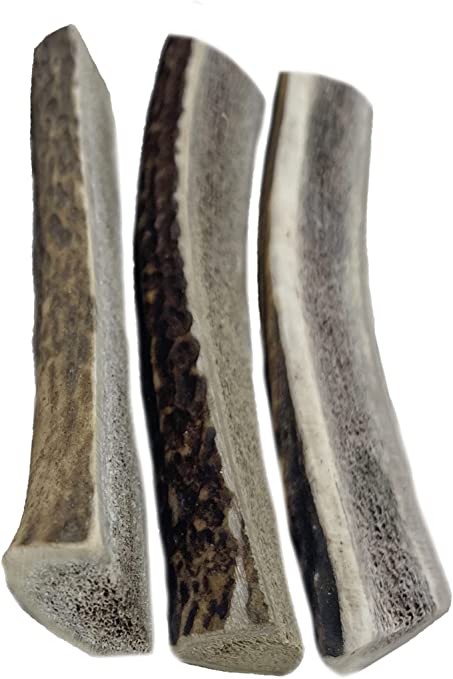 Antler/Horn Chews – Amazon –
Antler/Horn Chews – Amazon – 